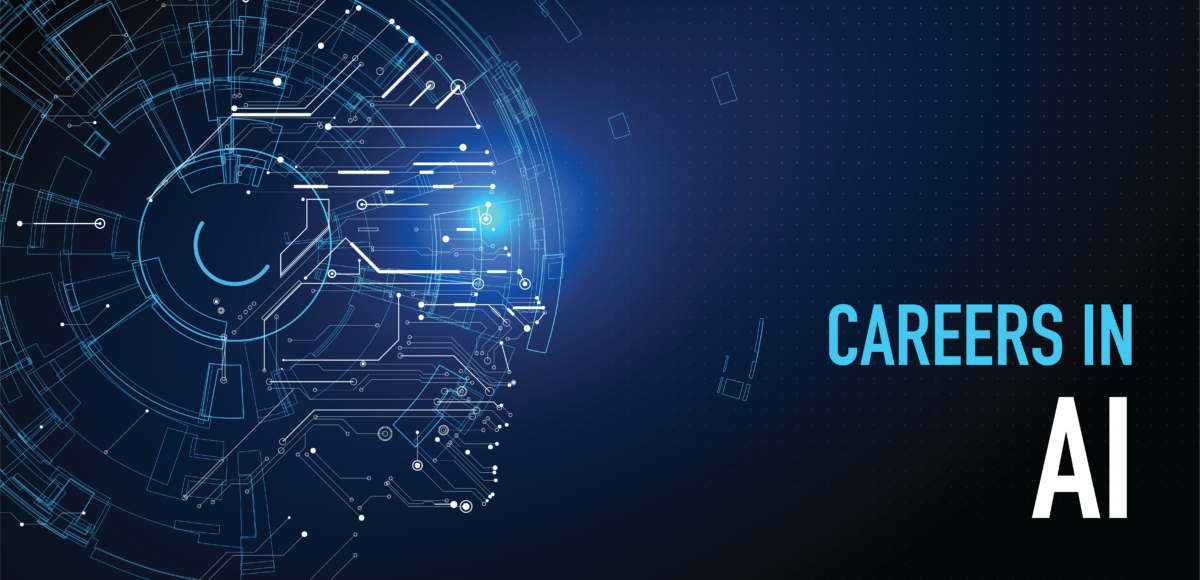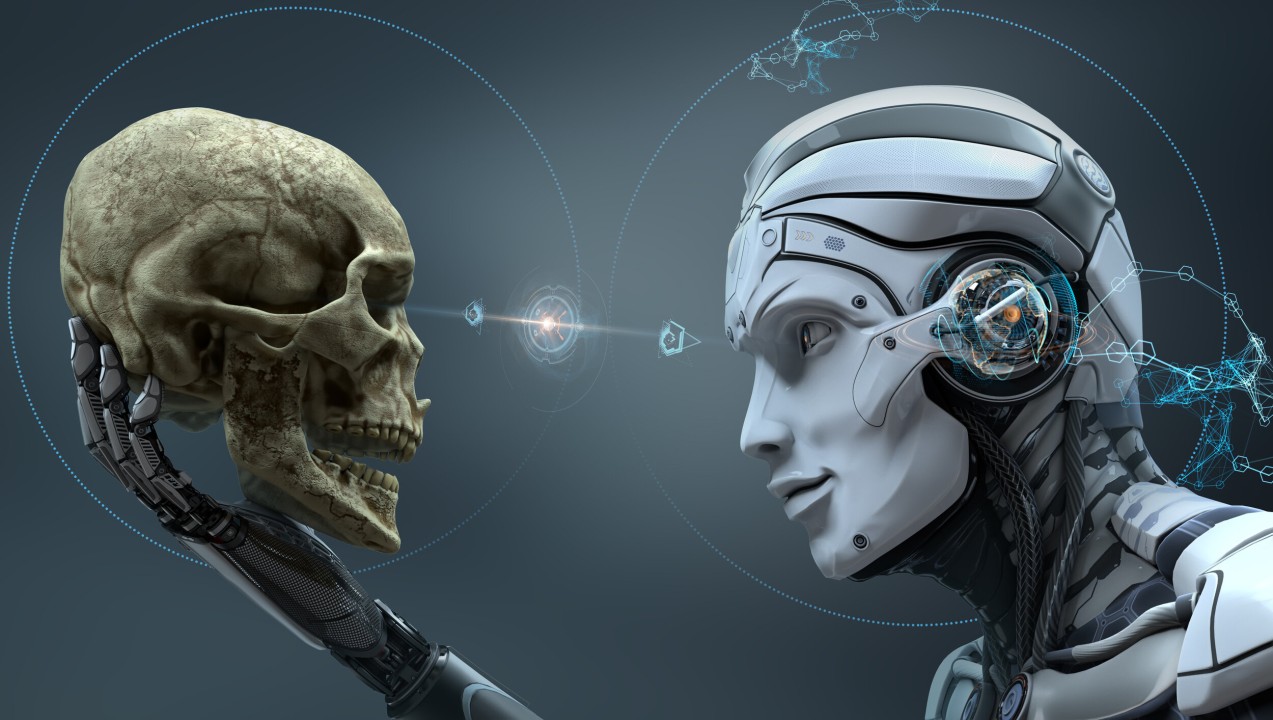Have you ever wondered about the Secrets behind the astonishing advancements made in Artificial Intelligence (AI) and Machine Learning (ML) ? These technologies have promptly become integral parts of our lives, influencing various aspects of our society.
As we step forward into the future, AI and ML career opportunities are growing and becoming more Promising than ever. Whether you’re starting from scratch or aiming to improve your existing career in Artificial Intelligence, This blog should be able to help you and to Know How to Build a Career in Artificial Intelligence and Machine Learning.

Introduction to Artificial Intelligence and Machine Learning
Before I get into the specifics of AI and ML careers, it’s crucial to establish a strong foundation about the basics of AI and Machine Learning. The concepts of AI and ML are often used interchangeably, but it’s essential to recognize the distinctions between these two cutting edge fields. Artificial Intelligence encompasses a broad spectrum of Technologies that enable machines to execute tasks typically requiring Human Intelligence. This includes understanding Natural Language, Recognizing Objects, and Decision Making akin to human thought processes.
On the other hand, Machine Learning is a subset of AI, concentrating on instructing machines to learn from data and continuously improve their performance over time. ML algorithms allow computers to identify patterns, make predictions, and adapt to evolving scenarios.
The real world applications of AI and ML are already astounding. As of 2024, AI and ML have made significant impacts in various domains. Here are just a few examples:
Autonomous Vehicles: AI plays a pivotal role in the development of self-driving cars, with ML used to teach cars how to navigate complex environments and make split-second decisions. Tesla is a very good example of it.
Fraud Detection: Financial institutions employ AI to detect fraudulent activity, identifying unusual behavioral patterns that may indicate credit card fraud.
Personal Assistants: Virtual assistants like Siri and Alexa, powered by AI, are continually improving their ability to comprehend and respond to natural language queries.
Face Recognition: Law enforcement agencies, security firms, and government entities utilize AI for scanning large crowds, identifying individuals, and enhancing security.
The future holds even more transformative changes as AI and ML technologies continue to advance. They possess the potential to tackle some of the world’s most pressing challenges, such as climate change, food shortages, and disease. If you’re eager to strengthen your knowledge base and skills in these cutting-edge technologies, consider enrolling in a first-class Artificial Intelligence course that focuses on AI skills and Machine Learning algorithms.
Artificial Intelligence and Machine Learning Career Paths
A career in Artificial Intelligence and Machine Learning is undoubtedly one of the most sought after and rewarding paths you can Enter today. With attractive salaries of over 150K$ Per Year and strong job growth projections, there have never been more opportunities to immerse yourself in this promptly growing field. However, understanding the specific roles available and how to prepare for them is key to building a successful AI and ML career.

Types of Jobs in Artificial Intelligence and Machine Learning
In the Fields of AI and ML, a number of Job opportunities await aspiring professionals. Here are some of the Most Popular Job roles in AI and ML you can explore:
1. AI Engineer: These professionals are responsible for developing, programming, and training complex AI models. They employ Machine Learning algorithms and Deep Learning Neural Networks to achieve this. AI Engineers focus on solving intricate problems, enhancing AI systems, and making them more intelligent.
2. Machine Learning Engineer: The role of a Machine Learning Engineer involves developing and deploying Machine Learning models. This encompasses selecting the appropriate algorithms and designing the infrastructure that supports these models. Machine Learning Engineers are vital in ensuring that AI systems are efficient and effective.
3. Data Scientist: Data Scientists take on the role of collecting, cleaning, and analysing data. They utilize this data to construct predictive models that support data-driven decision-making across a broad spectrum of industries. Data Scientists play a pivotal role in unlocking the power of data.
4. Research Scientist: If you have a passion for innovation and problem-solving, a career as a Research Scientist in AI and ML might be your calling. Research Scientists devise novel ways to apply Machine Learning to real-world challenges. Their responsibilities can span from developing new algorithms to working on applications such as Natural Language Processing or Computer Vision.

Future Scope of Artificial Intelligence
Artificial Intelligence is undeniably one of the most significant technological breakthroughs of our era. The scope of AI is limitless, with the potential to revolutionize every industry and make our world a better place. As we look ahead to 2025 and beyond, AI will continue to evolve and become more sophisticated. It will become even more adept at understanding and responding to the complexities of the world around us.
According to Forbes, AI jobs and Machine Learning skills are expected to grow by a staggering 71% in the next five years. This projection underscores the immense demand for professionals skilled in AI and ML, making it one of the most sought-after skill sets in today’s job market. The future is indeed promising for those who choose to pursue a career in AI and ML.
What are the Essential Skills for AI and ML Careers?
To succeed in the dynamic and ever evolving field of AI and ML, a robust skill set is essential. Here are the key skills that will equip you for a successful Career in Artificial Intelligence and Machine Learning:
Statistical Skills:
A profound understanding of statistics and probability is essential for comprehending complex AI algorithms. Modern AI models, at their core, rely on identifying patterns in vast datasets. As the architect of these systems, a strong grasp of the statistical methods used to derive insights from data is indispensable.
Mathematical Skills and Probability:
Aspiring AI and ML professionals are expected to be well-versed in applied mathematics. Beyond statistics, the field of AI encompasses numerous mathematical concepts. One of the most prominent is probability, which underpins a wide range of AI applications.
Programming Skills:
Mathematical aptitude is only part of the equation. Proficiency in programming languages such as Python, Java, C++, and R is essential. These languages are the building blocks of AI, enabling the creation and implementation of complex algorithms. Python, in particular, is the preferred choice for Machine Learning developers, offering libraries and frameworks to facilitate AI model development.
Advanced Signal Processing Techniques:
Feature extraction is a fundamental aspect of Machine Learning. Understanding how to identify the next feature and implement it effectively is essential for managing a model’s deployment. AI and ML engineers should be familiar with a variety of advanced signal processing techniques, enhancing their ability to extract valuable features from data.
Distributed Computing:
Nearly all AI job roles involve working with vast and complex datasets. Processing such data using a single machine is often impractical. As a result, AI and ML professionals are expected to be experts in distributed computing. This proficiency includes knowledge of applications like MongoDB and experience in creating and operating cloud environments. With the rise of cloud services tailored to Machine Learning, companies actively seek individuals with experience in these domains.
Other Skills:
A strong command of Unix tools and expertise in data modelling and evaluation are also highly advantageous. Unix serves as a primary working environment for AI and ML professionals and forms the foundation for many cloud services. Understanding data modelling and evaluation is critical for building effective AI systems.

The Roadmap to AI and ML Career Success
Having equipped yourself with essential skills, the next step is to navigate the various career paths available within AI and ML. Here, we explore Five major roles in detail, each offering distinct opportunities for growth and impact:
Machine Learning Engineer:
This role is ideal for those interested in programming machines to perform specific tasks and managing machine learning platforms. Proficiency in programming languages such as Python, Java, and Scala, along with experience in big data management, will be your allies on this journey. A master’s or doctoral degree in computer science or a related field, combined with strong computer programming and analytical skills, will further enhance your prospects of getting hired.
Data Scientist:
Data Scientists focus on collecting, analysing, and interpreting large and complex datasets using predictive analytics and machine learning. They may also be responsible for implementing new machine learning models to support timely and effective decision-making within an organization. Proficiency in tools like Spark, MapReduce, Hive, Pig, and Hadoop, combined with strong programming skills in SQL, Python, Perl, and Scala, will prepare you for this role. A master’s or doctoral degree in computer science, along with two or more years of machine learning experience, is preferred by recruiters. Some machine learning experience and familiarity with cloud tools like Hadoop or Amazon S3 will further increase your chances of getting hired.
Business Intelligence (BI) Developer:
Business Intelligence Developers play a pivotal role in analysing complex data sets to identify market and business trends. They contribute to transforming businesses into data-driven enterprises by advocating the benefits of data to stakeholders within the company. To excel in this role, you should possess strong analytical and technical skills, effective problem-solving abilities, and the communication skills required to collaborate with non-technical colleagues. A bachelor’s degree in computer science, engineering, or a related field is typically required. Skills in SQL queries, data mining, data warehouse design, and BI technologies will further strengthen your candidacy.
Research Scientist:
Research Scientists are masters in multiple AI disciplines, including deep learning, machine learning, computational statistics, and applied mathematics. They are expected to possess knowledge in areas such as graphic models, computer perception, natural language processing, and reinforcement learning. The role of a Research Scientist involves pushing the boundaries of known AI and elucidating advancements yet to be discovered. In addition to innovating new methods for advancing artificial intelligence, AI Research Scientists are required to explain AI using visualizations. A master’s or doctoral degree in computer science is the typical educational requirement. Some organizations may recognize an advanced degree in a related field along with relevant experience. Professionals should also possess a good understanding of distributed computing, parallel computing, machine learning, and artificial intelligence.
Big Data Engineer/Architect:
Big Data Engineers and Architects are tasked with designing, planning, and developing big data environments on systems like Spark and Hadoop. Their responsibilities encompass creating an ecosystem that facilitates communication between different business systems and data consolidation. This role also entails provisioning and establishing architecture tailored to specific use cases, requiring expertise in configuring databases and distributed computing deployments. Professionals with a Ph.D. in computer science or mathematics are often preferred for this role. They are expected to have prior experience with various programming languages, including Java, Python, C++, and Scala, as well as in-depth knowledge of data virtualization, data mining, and data migration.

AI and ML Certifications
Certifications are valuable assets for establishing your credentials in the world of AI and ML. Here are some prominent certification programs to consider:
Learn with Google AI:
This certification course introduces students to the Fundamentals of Machine Learning and covers basic concepts of TensorFlow. It is ideal for candidates with no prior knowledge of Machine Learning. For those already familiar with machine learning, the course can serve as an Introduction to TensorFlow.
Stanford University Machine Learning:
Stanford University’s machine learning course is beneficial for professionals who want to learn how to implement machine learning in various applications, including web search and speech recognition. The course covers statistics topics such as backpropagation methods and linear regression in detail. It also familiarizes candidates with MATLAB, a widely-used AI programming language.
Google – Machine Learning:
Google’s Machine Learning course delves deeper into the subject and is suitable for candidates with some prior machine learning experience. The course focuses on deep learning and the design of self-teaching systems that can learn from large and complex datasets. It is ideal for candidates aspiring to work as data analysts, machine learning engineers, data scientists, or individuals looking to harness open-source materials and libraries available.
Columbia University Machine Learning:
This course is designed for those looking to develop a deep understanding of machine learning. It covers models, applications, and methods used to solve real-world problems using supervised and unsupervised learning. The course explores topics like sequential models, clustering methods, matrix factorization, topic modelling, classification and regression, and model selection.
Nvidia – Fundamentals of Deep Learning for Computer Vision:
Computer vision is a subfield dedicated to developing computers with the ability to process visual information, much like humans. This course covers the technical fundamentals of computer vision and its applications. It teaches students how to identify scenarios and problems for image classification and object recognition. The course also emphasizes the role of GPUs in the emergence of computer vision applications.
MIT – Professional Certificate Program in Machine Learning and Artificial Intelligence:
This program enables students to grasp essential concepts and acquire the skills needed to develop effective AI systems. It teaches students how to apply industry-relevant knowledge in AI and machine learning. Candidates applying for this course are required to have a minimum of three years of professional experience and a master’s degree in physics, statistics, computer science, or electrical engineering. The program is ideal for professionals seeking to learn key concepts, algorithms, and practical examples of AI and machine learning.

Importance of Staying Updated in AI and ML
As you progress in your AI and ML career, staying informed about the latest advancements is essential. AI and ML are dynamic fields with frequent developments, making continuous learning a necessity. To remain at the forefront of the industry, consider the following strategies:
Participate in Events: Attend conferences, seminars, and workshops related to AI and ML. These events provide opportunities to connect with experts and gain insights into the latest trends and technologies.
Subscribe to Newsletters: Subscribe to newsletters from AI-specific sources, such as Google AI and DeepMind. These newsletters often feature updates on research, breakthroughs, and emerging technologies in the field.
Online Courses and MOOCs: Enroll in online courses and Massive Open Online Courses (MOOCs) that cover the latest developments in AI and ML. Platforms like Coursera, edX, and Udacity offer a wealth of courses.
Online Communities: Join online forums, communities, and Social Media groups dedicated to AI and ML. These platforms provide opportunities for discussions, knowledge sharing, and networking.
Read Research Papers: Explore research papers published in reputable journals and conferences. Keeping abreast of the latest research can help you stay informed about cutting-edge advancements.
Collaborate on Projects: Engage in AI and ML projects or collaborate with professionals in the field. Practical experience and hands-on work can deepen your understanding and help you apply your knowledge to real-world scenarios.
Networking and Career Advancement
Networking is a critical aspect of building a successful Career in Artificial Intelligence and Machine Learning. Here’s how you can leverage your connections to advance your professional journey:
Conferences and Meetups: Attend AI and ML conferences, meetups, and events to meet like-minded professionals, experts, and potential employers. These gatherings provide opportunities for meaningful interactions and collaboration.
Collaborative Projects: Partner with colleagues and peers on AI and ML projects. Collaborative work can lead to new opportunities and expand your network.
Online Platforms: Engage in discussions on AI-focused online platforms, such as GitHub and Kaggle. Participating in open-source projects or competitions can help you connect with professionals and demonstrate your skills.
Mentorship: Seek out mentors who are experienced in AI and ML. A mentor can provide guidance, offer valuable insights, and help you navigate your career path more effectively.
Landing Your Dream Job in AI and ML
Securing your dream job in AI and ML requires a strategic approach. Here are steps to help you stand out and land your desired position:
Tailor Your Resume: Customize your resume to align with the specific AI or ML job you’re applying for. Highlight relevant skills, projects, and experiences that demonstrate your qualifications.
Build a Strong Portfolio: Create a portfolio showcasing your AI and ML projects. Include detailed descriptions, code samples, and outcomes of your work. A compelling portfolio can set you apart from other candidates.
Prepare for Interviews: Familiarize yourself with common AI and ML interview questions and be ready to discuss your projects and problem-solving skills. Practice coding challenges and whiteboard interviews to enhance your technical proficiency.
Networking: Leverage your professional network to discover job opportunities. Attend AI and ML events, reach out to connections, and use online platforms to connect with potential employers.
Apply Strategically: Apply for positions that align with your skills and interests. Tailor your applications to the specific job requirements and company culture.
Continuing Education: Stay updated with the latest trends and technologies in AI and ML. Continuously improve your skills and knowledge to remain competitive in your Career in Artificial Intelligence.
And of Course, Staying in Touch with Us
Final Words 0f Wisdom
A Career in Artificial Intelligence and Machine Learning is not only rewarding but also in high demand. With the right skills, certifications, and a commitment to continuous learning, you can unlock numerous opportunities in this dynamic field. Whether you aspire to be an AI Engineer, Machine Learning Engineer, Data Scientist, Research Scientist, or Big Data Engineer/Architect, your journey to a successful career in AI and ML begins with a strong foundation and a clear roadmap.
So this was a deep dive into How to Build a Career in Artificial Intelligence and Machine Learning in 2024. The world of AI and ML is ever-evolving, presenting limitless possibilities for those who embark on this exciting journey. As you are directing your career path in 2024 and beyond, remember that perseverance, a passion for learning, and a commitment to staying informed are your greatest assets. By following this guide and adopting a growth mindset, you can build a successful career in Artificial Intelligence and Machine Learning, contributing to the transformative power of these technologies in our world.
Also, Read Top 10 Highest Paying AI Jobs for 2024.
I can be reached at shayan@ml-jobs.ai . Here’s are the links to my X and Linkedin



